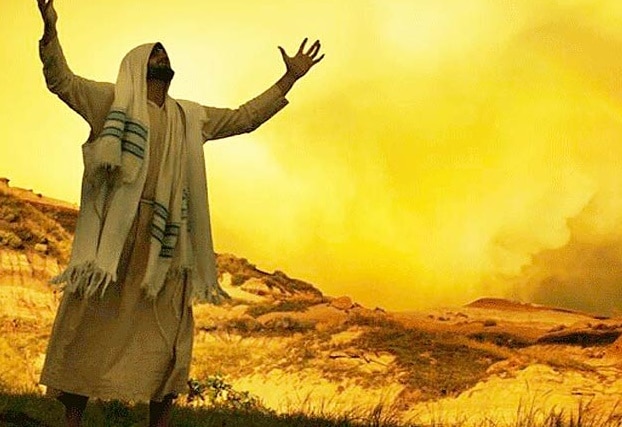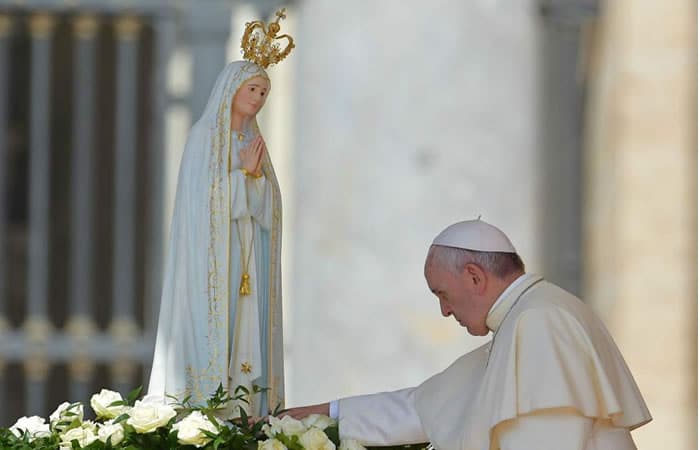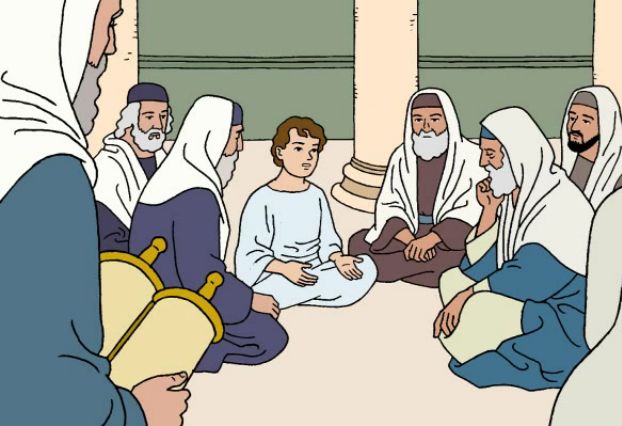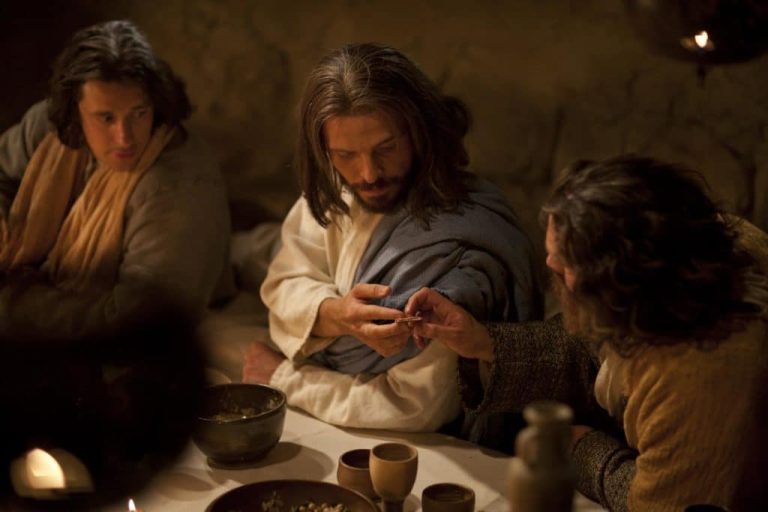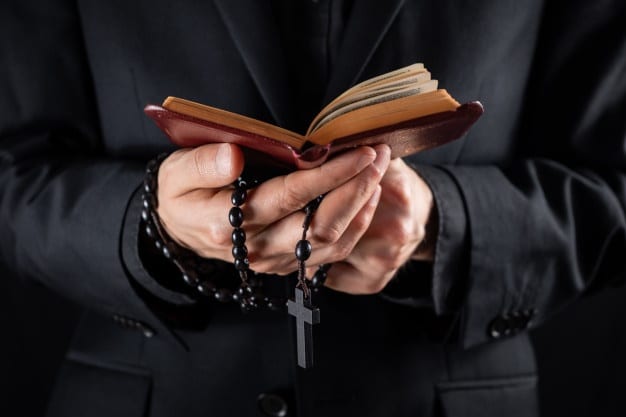Learn all about the evangelical church and its doctrine of salvation, here
On this occasion we will learn everything related to the evangelical church and its similarities and differences with other Christian denominations, as well as review part of its history and doctrines.
What is the evangelical church?
As we know, the term “evangelical” means to preach or make known the Christian doctrine of the gospel or the Good News (which is what “gospel” translates).
It is therefore appropriate to note that the “Evangelical Church”, sometimes also referred to as the “Evangelical Church” or “Protestant Church”, is defined as the Christian denomination whose primary mission is to share the Good News of salvation and seek to restore personal relationship and directly between the human being and God through a message of peace, freedom and justice.
In this way, through this message, the path to a full life is shown both emotionally and spiritually, in a perfect communion with God and that in our current society is actively lived by imparting that message to everyone through everywhere
Thus, within Protestant Christianity, the evangelical current is established with the Gospel as an instrument of salvation and which indicates that the essential thing is to accept the conversion to Christ and experience a “born again”.
This requires leaving sin and letting God have control of our lives through an act of faith by which the Son of God is received as Lord and Savior to direct our destiny.
It is appropriate to point out that evangelizing is not exciting unbelievers with the Christian life, with programs of the local church, with the dynamism of meetings with music and talks; much less try to attract them to the personality of a leader or the affection of a group of brothers.
To evangelize is to expose to people what the gospel says about Christ, why he lived among human beings, why he died for our sins and rose from the dead, and to make the Word of the Lord known to them in order to establish a contact intimate with Him for the salvation of the soul.
All this as referred to in the Holy Scriptures. (Learn more about the Seventh -day Adventist Church
History
The Christian church began in the region known as the Middle East, specifically in the town of Jerusalem, in Judea, which was part of the Roman Empire.
Its first manifestations date back to the middle of the 1st century AD. C., time in which the first Christian communities were formed after the coming of Jesus, the Messiah.
In his pilgrimage, Jesus Christ left in his preaching that there is one and only God, who was the creator of the universe, the earth, the fauna and the flora and the first human beings, Adam and Eve, created in his image and likeness, in in terms of character, reason, beliefs, humility, emotions and respect.
Christ founded in that ancient era both the Christian doctrine and the Church, for which he formed a group of his disciples, who later became his apostles, in charge of imparting the doctrine to all the populations of the region.
The Christian church came to expand to regions as dissimilar from each other as Mesopotamia, Ethiopia, Transcaucasia, Syria, Egypt, Anatolia, from where it reached Europe and finally the whole world.
Historically it has been pointed out that Christianity originated from the Jewish religion, which was the best known faith in the region and which is referred to in the Old Testament.
Now, the origin of the evangelical movement is related to Methodism or the Methodist Church of Great Britain, the Moravian Church or the pre-Lutheran Evangelical Church, and to Lutheran Pietism.
Among the most influential figures who led to the full consolidation of the evangelical movement in the past and present world are John Wesley, George Whitefield, Martin Luther, John Calvin, Jonathan Edwards, Charles Spurgeon, John Stott, Martyn Lloyd-Jones, William J. Seymour and Billy Graham.
Of course, the most emblematic figure is the German priest Martin Luther, master of arts and sacred theology from Wittenberg, in Saxony-Anhalt, who promoted the Protestant Reformation of 1517, in which he denounced, through his 95 theses, the improper acts of the popes of the time.
Luther’s Reformation sought to correct something that, clearly, was not consistent with what was preached in biblical doctrine.
Among those improper acts are abuses of authority, the collection of indulgences from sinners to exculpate them from their sins, and other acts of papal corruption.
Through his exhaustive study of the Bible, in particular the Epistle to the Romans, he found that the Church had deviated from some basic principles of Christianity, such as the principles of salvation only as a result of faith in Christ and forgiveness. only as a result of confession to God of sins.
According to Luther’s findings, this led to losing the divine essence and committing improper and corrupt acts. He attempted to correct what he considered serious errors within the church at that time.
He even participated in the celebration of a council that ended in the schism or division of the church when an attempt was made to force him to retract what he had said.
Because of his refusal to recant, Pope Leo X excommunicated him, thereby initiating Luther into the “Protestant branch” of Christianity.
Although reforming movements followed one another long before Lutheranism, it was Lutheranism that achieved the fullest development.
This reform of Martin Luther generated the appearance of many other churches, thereby causing a revolution and a departure from fundamental religious beliefs, which challenged the power of the Vatican.
apostles and prophets
The qualities of these two types of people who are chosen by God to deliver his message to humanity are outlined below. Let’s see:
apostles
In general, an apostle is called any person who is dedicated to spreading an idea, whether of a political, social or religious nature, such as preaching a doctrine or belief.
The word comes from the Greek “Απόστολος”, which means sent to propagate or spread a message.
According to the Gospels, which are books written by some of Jesus’ disciples about his life, there were twelve apostles who accompanied him to bring the Word of God to others. But we also have current apostles who are the bishops of the church.
The Apostles were:
- Pedro, originally Simón, was dedicated to fishing. Jesus changed his name to Petrus or Pedro which means “stone”.
- He was born in Bethsaida at the end of the 1st century BC.
- There is not much information about him before he became a disciple of Jesus.
- It is believed that he had a wife, considering what is said in the gospel that speaks of the healing of his mother-in-law.
- He is considered the Prince of the Apostles and the first pope of the Catholic Church.
- Andrew, Peter’s brother. He was born in Bethsaida. He was the first apostle of Jesus upon receiving the invitation from Christ after being baptized by John the Baptist.
- Andrew founded many churches in Achaia and converted many people to God.
- He was a fisherman.
- James the Elder, the one from Zebedee. He was born in the fifth century BC in Bethsaida.
- It is said that he belonged to a wealthy family.
- He had an effusive and impetuous character, dynamic and determined.
- He was an outstanding leader of the Judeo-Christian communities.
- He was a fisherman.
- Juan, brother of Santiago el Mayor. He became known as the “beloved disciple.”
- He was born in Bethsaida around the year 6 AD. c.
- He was the youngest of the disciples and the last to die.
-
- He witnessed the transfiguration of Jesus on Mount Tabor.
- John is believed to have been a wealthy man who took care of the Virgin Mary after Jesus’ death.
- He was a fisherman.
- Philip. From Bethsaida.
- He suffered constant persecution for showing his faith, just like the other apostles.
- It is said that he had two daughters
- He considered himself a man of integrity who gave his life for the preaching of the gospel.
- Bartholomew. Also known as Nathanael.
- He was born in Cana of Galilee.
- He was an apostle through the intervention of his friend Philip, who introduced him to the Messiah.
- It is said that he carried out his mission in Asia.
- He was an honest man, dedicated to the mission entrusted to him.
- Thomas. Nicknamed the Twin. He is believed to be Jewish.
- He was born in Galilee.
- He is remembered for being very unbelieving. He claimed that he would not believe in the resurrection of Jesus until he could see the mark of the nails in his hands and put his hand into the side of Christ.
- Matthew. He was also known as Levi.
- It is believed that he was born in Capernaum.
- He was a publican and worked as a tax collector for the Romans
- He was a wealthy man, lived comfortably, and was known as a smart, knowledgeable, wise, and judicious man.
- He traveled the East preaching the word.
- Saint James the Less, that of Alphaeus.
- There is no precise data on the date of his birth.
- He carried out a great evangelizing work, always ready for the battle of faith and the expansion of the message of Christ.
- He was recognized as the first Bishop of Jerusalem.
- It has been said that he was the brother of Judas Tadeo.
- Judas Tadeo. He is mentioned under the name “Lebbaeus” in Matthew.
- He did his missionary work with Simon and Judas in Babylon.
-
- He converted a large number of people, including the king and wealthy people.
- They say that Simon and Judas were martyred and their bodies buried in a sumptuous church by order of a king in the capital of the kingdom that received them.
- Simon the Canaanite. He carried out his evangelizing mission in Babylon.
- He managed to convert many wealthy people economically.
- He was martyred to death, just like Tadeo, and his body was ordered to be buried with honors by order of a king.
- Judas the Iscariot, the same one who delivered him.
- Known as the traitor.
- He managed the finances of the group and used the money set aside for the poor for other purposes.
- According to the gospels, he led the guards to the place where Jesus was and by kissing Jesus on the cheek, he was identified and caught.
- He betrayed his master for 30 silver coins.
Learn more about the Pentecostal Church
The apostles traveled with Jesus to many places imparting his teachings. They shared many things with Him, even the manner of death, since all, except for John, were martyred.
All the disciples were ordinary men, but upon receiving God’s call, they changed their way of life.
They had to face many hardships in order to fulfill the Father’s will.
Of course, on many occasions they were afraid of the circumstances they had to go through while accompanying Jesus on his pilgrimage on earth. But they had their reward after the resurrection of Christ, by receiving the Holy Spirit on the day of Pentecost.
From then on they began to carry out their mission with more vehemence, even when Jesus no longer accompanied them physically.
Each one had a specific mission, including Judas Iscariot, who, despite having betrayed Jesus, played a fundamental role.
Paul of Tarsus and Barnabas were also apostles, even though they were not directly called by Jesus Christ, but later.
Its primary mission was:
- Expand the Kingdom of God
- Preach the gospel
- Perform different prodigies and miracles, such as healing the sick, resurrecting, casting out demons, etc.
Some religions or Christian denominations believe that there are apostles today, for example the so-called New Apostolic Church, or the Church of Jesus Christ of Latter-day Saints, which has a Quorum of the Twelve Apostles who are present today.
prophets
For the evangelical church, as for the other Christian churches, the prophets are the representatives of God on earth, whose mission is:
- preach his word
- Put into practice each of its teachings and
- Rescue the lost souls dominated by the demon.
They are people who claim to have experienced a personal contact or encounter with God and who were commissioned to transmit what was communicated and speak on his behalf to human beings.
They possess qualities to intercede for the people before God, just as the prophets of the ancient world did.
They have the charisma of explaining history from God’s point of view, which is known as: the gift of prophecy . So they can:
- teach the truth
- Interpret God’s message through his revelations
- They can see and predict the future.
The one chosen by God as a prophet can be an adult or an old person, but also a young person, educated or not, and is distinguished by his rectitude in proceeding with the divine message.
Types
There are several types of Christian prophets. However, by virtue of its history and recognition, two types have been established; namely:
- The major prophets: They wrote the works with the greatest religious content:
- Isaiah
-
- Jeremiah
- Ezequiel
- Daniel.
- The minor prophets: Their works are smaller, but just as much teaching. They are:
-
- hosea
- Joel
- Amos
- Obadiah
- Jonah
- Micah
- nahum
- Habakkuk
- Zephaniah
- Haggai
- Zacharias
- Malachi.
The vast majority of the minor prophets are said to have lived between 750 and 500 BC. c.
Others
There are prophets who have stood out for their work of spreading the message of God and keeping the teachings of Jesus alive, through the messages they receive from the Lord. They distinguish three qualities:
- Conduct of having been chosen by God , that is, the so-called
- The vocation of the prophet himself, which translates into his willingness as a person to transmit the Word.
- An order that unites both.
Among the other Christian prophets we have:
- Abraham , also called the Father of Faith
- Moses , who was entrusted with the Tablet with the Ten Commandments
- Elijah, who, on his desert journey to Mount Horeb, relived the experiences of Moses, when he received the law.
- It was he who confronted the prophets of Baal to prove the truthfulness of the God of Israel.
- Saint Faustina, born in Glogowice, Poland in 1905. She was chosen by God to spread the devotion to Divine Mercy.
- He announced, eight years in advance, the last world war and the bombing of Warsaw was also revealed to him.
- The exact date of his death from tuberculosis was also revealed to him.
- Sister Lucia: in charge of the Three Mysteries of Fatima, two of which were revealed in 1942; namely:
- God wishes to establish devotion to my Immaculate Heart in the world.
- The announcement of the end of the First World War
- In the world you will have tribulation, but trust; I have overcome the world (Jn 16:33) .
The Fatima message is an invitation to trust in this promise.
Current Christian Prophets
A prophet today has a commitment to time and what should alert the people. He is a man who lives in the now with memory of the past, but who looks to the future.
A current Christian prophet has in his feeling the duty to change everything that is considered against the message that God communicates to him. His work transcends his own being, since when he speaks, it is God who does it through him.
His mission, by transmitting the divine message, is to transform the world, according to the mandates he receives from that eternal voice that becomes internal and that he later externalizes.
It is about a person who, through that spirit, maintains an intimate experience of communion with God, to whom he unites to see the realities and speak on his behalf.
The Christian prophets know that they have been chosen to transmit the Word heard, the message received from the voice of God. They differ from idolaters, who are generally passionate and fanatical, who want to convey and impose their opinion, interpreting God’s message in their own way.
It has been said that God’s communication with the prophets is through dreams and visions. Really, God makes himself present through the events of the people who have the gift of receiving him, to:
- Warn men of sorrows and anguish
- observe reality
- Offer a message of comfort
- provide calm
- Animate and change things.
evangelical and catholic church
Even when both religious currents arise from the same doctrine, Christianity, through the centuries there have been divergences, which led to their division.
This resulted in new Christian denominations that with the passing of time have been consolidating each one in its particular precepts.
However, despite recent attempts to try to unify the Christian faith, promoting ecumenism among all Christian denominations, as well as establishing approaches that some leaders have made, there are still certain differences that have not been resolved; namely:
- The Bible: The Catholic Bible has more books than the Protestant Bible (66 books), since it includes the apocryphal books, which totals 73 books.
- Catholics give equal value to Catholic tradition and to the decrees of the Pope.
- Protestant Christians hold the Bible as absolute authority in the faith and practice of the church.
- The Virgin Mary: one of the great differences
- Catholics worship and venerate Mary and elevate her as co-redeemer to the same level as Christ. She also was conceived without original sin.
- Protestant Christians value Mary, but do not worship her. They consider that she was a sinner like all human beings, that she is not a mediator between Christ and the Church, since only Jesus is the mediator between God and men.
- The Sacraments: There is a difference in number:
- For Catholics there are seven sacraments: Baptism, Confirmation, Eucharist, Penance, Marriage, Anointing of the Sick, and Holy Orders.
- For Protestant Christians: baptism and the Holy Supper.
- The Holy Supper:
- For Catholics: the wine becomes the blood of Christ and the bread becomes the meat. This is known as transubstantiation.
- For Protestant Christians: Both wine and bread, when drunk and eaten, are just a reminder of Christ’s sacrifice for our sins.
- Prayer for the Dead (Purgatory)
- For Catholics: Saints who die in sin need to go through purgatory. In addition, they pray for the dead.
- For Protestant Christians: all of God’s children will die with some sin because they are sinners, but they will go to the presence of God directly.
- The divorce:
- For Catholics: Divorce is not allowed. There are exceptions, but you cannot marry again.
- For Protestant Christians: They believe that the Bible allows divorce when there is adultery and when there is abandonment by one of the spouses.
- Church government:
- For Catholics: the government is hierarchical. The pope represents absolute authority and is infallible.
- For Protestant Christians: Christ is the head of the church and a congregation of the faithful is representatively led and shepherded.
Find out about which is the largest evangelical church in the world
Basic evangelical doctrines
As is well known, the doctrines established in the Gospel are the guides through which believers can make known the Word of God.
The objective pursued with these evangelical Christian doctrines is that they be an instrument of orientation for those who evangelize and their purpose is to reinforce Christian faith and testimony.
Likewise, it is intended to teach the truth of Christ to others.
The evangelical Church has many doctrinal points by which its devoted faithful are guided. Among the most significant are:
- Repentance and conversion of sins
The believer is asked to recognize that he is a sinner. This implies that he no longer has the Glory of God, so he must repent from his heart and be born again, just as Jesus said.
So too, Peter, the apostle, asked before a large number of people to repent of their sins and convert, so that better times could come in the presence of the Lord.
- New birth in Christ
The repentant sinful human being is born again in Christ Jesus, which implies that he is no longer a child of sin and has already been transformed into a child of God.
He is considered, therefore, heir to the kingdom of heaven, along with Jesus.
- sanctification
Thanks to the devotion and action that the Spirit of God carries out in the human being, the renewal process is carried out, just as the biblical quote from Ephesians 4:24 says.
It is this Spirit of God who sanctifies the whole being, spirit, body and soul and keeps it chaste for the coming of the Lord.
It is believed that a new believer should be baptized if he or she has not completed a process of learning the doctrine of the congregation in which he or she participated as a believer.
According to its precepts, privileges cannot be given to a member who has not been properly trained to preach or speak from a pulpit.
This has led to confusion when a person has been baptized and automatically recognized as a member of the church. Therefore, it is exhorted to review the process, since every member is registered in the book of life, in which everything is registered and, thus, reaches the kingdom of heaven.
It has been found that many evangelical congregations emphasize that if you are not properly baptized, you will not enter the kingdom of heaven, since you have to spend several months learning the doctrinal teachings, in their workshops set up for that purpose.
It is emphasized, then, that a person can be baptized at the same moment of their conversion, but this does not qualify them to impart teachings.
- Baptism in the Holy Spirit and Fire
This is the same baptism that was done to the Lord Jesus Christ, carried out by John the Baptist. He had already declared that after him would come the one who would properly baptize with the Holy Spirit and Fire.
You may be interested in knowing what the Methodist Church is.
These are some of the doctrines that are in force in the evangelical churches. For them it is a certain fact that the rapture of the church will take place just before the great tribulation.
Others have indicated that it will be halfway; that is, three and a half years after the reign of the devil or Antichrist began.
Contrary to these two versions, there are those who believe that this will really happen at the end of the last three and a half years.
We can see how evangelical Christian beliefs can be differentiated from other dogmas by the concept of religion that this current has. All this is due to the philosophical definition that is handled there.
The total authority they give to the Gospel and the Bible as their only sacred writing through which they guide all their actions towards God and their neighbor is reiterated and highlighted.
In addition, they constantly reaffirm their belief in the second coming of Jesus and the consequences that follow from it.
Thus, ultimately for this church you only have to obey:
- A Triune God, who created everything visible and invisible.
- A Fiery work of Christ, by which he revealed the love of God, redeemed sin and reconciled humanity with God.
- The holy spirit and his work, referring to everything invisible and through which man is guided towards the light of the Kingdom of Heaven.
- The Gospel, through which Jesus pours out his blessings, wisdom and, in short, his divinity in life, work, death, resurrection and ascent to the kingdom of his Father.
They are the obediences that must be performed to convert and be able to access the Lord.

Hello! Let me enthusiastically introduce myself as a dedicated blogger fueled by an intense passion for meticulously crafting insightful and well-researched blogs. My mission revolves around providing you, dear readers, with a veritable treasure trove of invaluable information.

